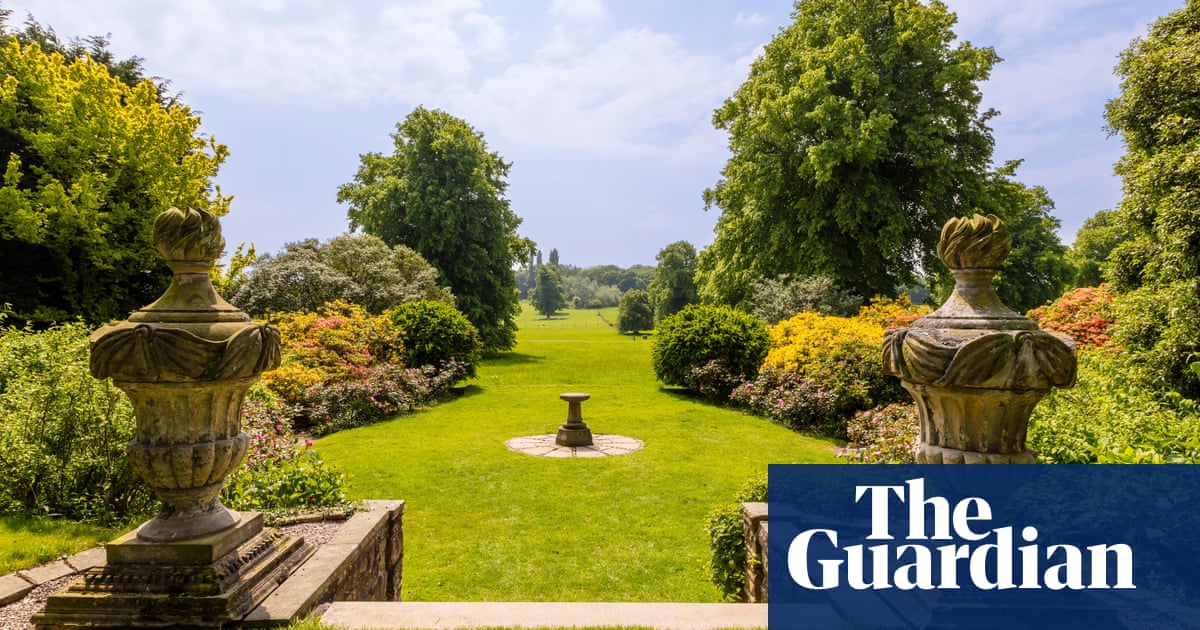Philip Ignatius Brooke – aristocrat, playboy, countercultural icon, owner of a 1,000-acre estate in the Sussex countryside – is dead. And no one is especially sad. Certainly not his immediate family, who, convening at the ancestral home, agree that, as well as being a “visionary” and a “legend” for his part in staging the Teddy Bears’ Picnic, a sort of British Woodstock, Philip was undoubtedly “a shit” – a liar, a bully and a cheat.
It is an uncertain legacy. As the central event in Anna Hope’s fifth novel, Albion, his funeral represents a broader cultural laying to rest of all that Philip and his ancestors – and, indeed, the English country house itself – represent: empire, exploitation, entitlement and privilege. Each member of the family, in their own way, wishes to escape the past’s long shadow and begin afresh. Frannie, the eldest, who has inherited the estate, has spent the last 10 years rewilding it and creating a “nature corridor all the way to the sea”. Milo, a recovering alcoholic and sex addict, has grand plans to build a treetop rehabilitation centre for the world’s 1%. Isa, the youngest, wants nothing to do with any of it and has become a teacher at a school in south London; Grace, Philip’s widow, is filled with regret for not having left sooner or protected her children better. And then there is Clara, who may or may not be Philip’s illegitimate daughter. Rather than burying the past, she wishes to bring it into the cold light of day.
Albion is an ambitious novel, in scope and implication, and it begins promisingly. The scene is very well set; the house and its grounds – family portraits by Sir Joshua Reynolds, gardens by Humphry Repton – are entirely convincing. The estate’s current iteration as the “Albion Project”, given over to “ecosystem restoration”, with yurts and shepherd’s huts for middle-class weekenders (and derided by Isa as “about as wild as a fucking printed tea towel”), is perfectly pitched. So too is the idea of the Teddy Bears’ Picnic, the remnants of which can still be found in the woods, along with the ageing hippy Ned, who lives there in his bus.
after newsletter promotion
The prospect of Succession-style infighting between the damaged and slightly deluded siblings is also promising. Milo in particular offers rich pickings: he turns up in his “sustainably sourced” trainers, puffing on a vape, armed with detailed plans for “The Clearing”, a wonderfully barmy idea to heal the world’s leaders with magic mushrooms. Milo is trailed by the slick fund manager Luca, a childhood friend of the family and Frannie’s erstwhile beau. The reader leans forward, expecting high drama, backstabbing and betrayal – there is talk of money troubles and even of evicting Ned from his home of 50 years – but nothing much comes of any of this.
Instead, the main event is the arrival of Clara, who has flown all the way from America to attend the funeral. She ends up being a more unwelcome surprise than anyone was expecting. Without giving too much away, she is a PhD student and has been digging into the family history, in particular the source of the Brookes’ wealth, which was used to build the family home. She delivers a lecture (literally a lecture – she has notes) in the middle of Philip’s commemoration dinner. What she reveals profoundly shocks the gathered family, especially Frannie, who sees herself as a force for positive change and “intergenerational justice”.
This is a difficult topic, and it is here unsatisfyingly handled. The engaging – if over-numerous – family dramas and flawed cast of characters are all overshadowed by Clara’s massive revelation, which is itself then swiftly nullified by a round of therapeutic hugging and sharing, with the enactment of propitiatory rituals (not unlike the laughable “healing” exercises satirised earlier). Any residual satire or irony is dispelled as the sun comes out and happy endings blossom. Clara, mission accomplished, flies off, and talk turns to “the next part of the story”. This part is over; let’s move on. As a conclusion it feels bland and seamless, which was surely not the intention.
